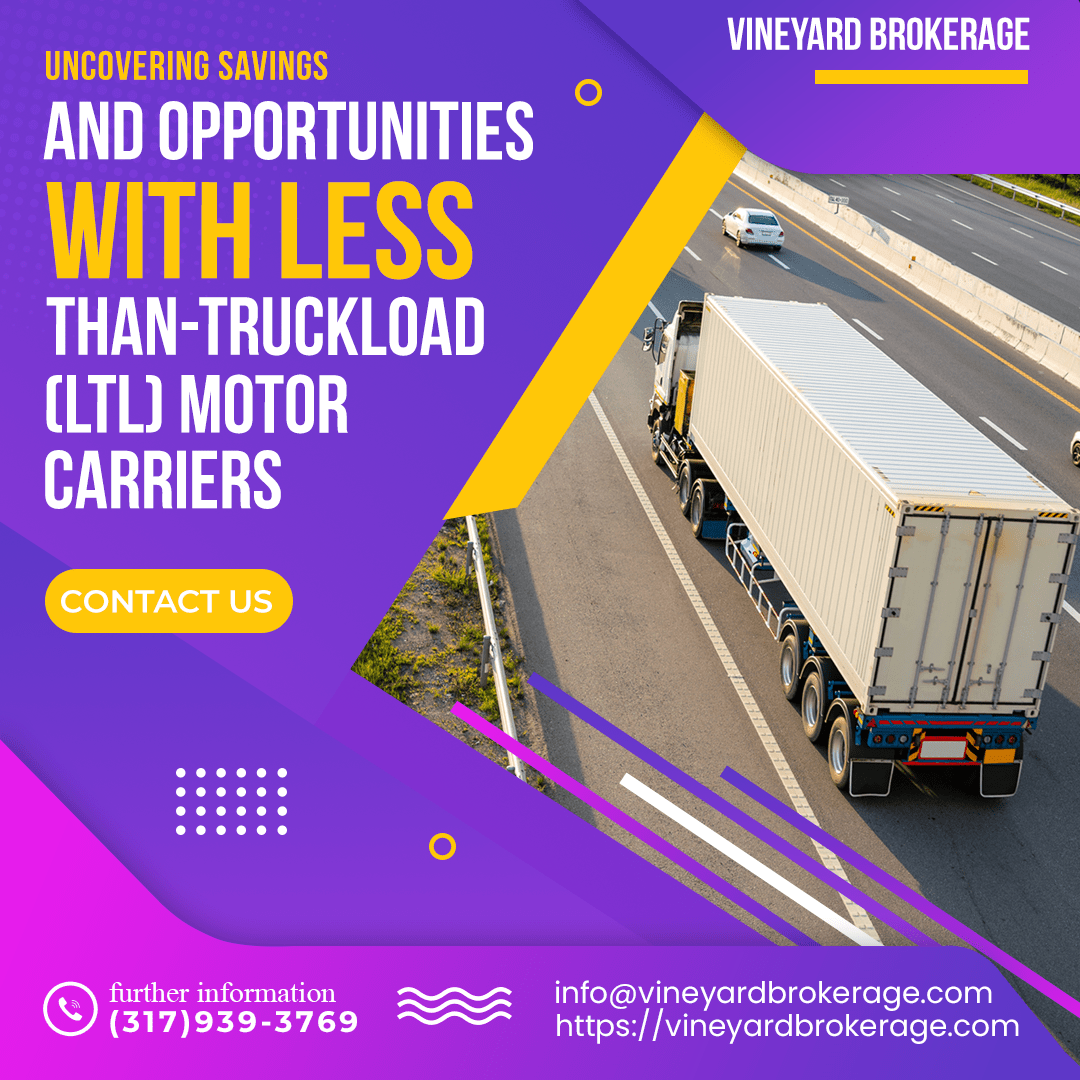Uncovering Savings and Opportunities with Less-Than-Truckload (LTL) Motor Carriers

In the dynamic world of logistics and supply chain management, finding the most efficient and cost-effective transportation solutions is paramount for businesses. One option gaining popularity among shippers and freight brokers is utilizing Less-Than-Truckload (LTL) motor carriers. The carriers provide distinctive advantages that can increase supply chain efficiency by streamlining processes, cutting costs, and decreasing costs.
At Vinyard Brokerage, we understand the importance of staying ahead of industry trends and providing our clients with the best solutions. In this blog, we’ll delve into the world of LTL motor carriers and explore how they can help your business thrive.
Understanding LTL Motor Carriers
Less-than-truckload (LTL) shipping is a freight shipping method designed for shipments that only fill part of the truck. This method allows multiple shippers to share space on the same truck, significantly reducing costs for each shipper. LTL motor carriers specialize in handling these smaller shipments efficiently and cost-effectively.
The Advantages of LTL Motor Carriers:
- Cost Savings: LTL motor carriers offer substantial cost savings because you only pay for the space your shipment occupies. For companies who send smaller or more irregularly sized goods, this can be extremely helpful.
- Enhanced Efficiency: LTL carriers have finely tuned networks and distribution systems. They consolidate shipments from various shippers into a single truckload, optimizing routes and reducing transit times.
- Reduced Risk: Smaller shipments are less susceptible to damage in transit since they’re handled with more care. LTL carriers often have advanced tracking systems that provide visibility throughout shipping, reducing the risk of loss or damage.
- Environmental Benefits: LTL motor carriers contribute to a greener supply chain by consolidating shipments. Fewer trucks on the road mean lower carbon emissions, aligning with sustainability goals.
- Access to Specialized Services: LTL carriers often offer additional services such as liftgate delivery, inside delivery, and appointment scheduling, providing added flexibility for your shipping needs.
Key Considerations When Choosing LTL Motor Carriers:
- Reliability: Look for carriers with a proven track record of on-time deliveries and minimal disruptions.
- Service Coverage: Ensure the carrier’s area aligns with your shipping needs and target markets.
- Technology: Opt for carriers with advanced tracking and reporting capabilities for real-time visibility into your shipments.
- Pricing Structure: Understand the carrier’s pricing structure, including any accessorial charges, to avoid surprises on your invoice.
- Reputation and References: Research carrier reviews and request references to gauge their performance and reliability.
Partnering with Vinyard Brokerage for LTL Solutions
At Vinyard Brokerage, we’re dedicated to providing our clients with the best transportation solutions to meet their unique needs. Our extensive network of LTL motor carriers allows us to connect you with reliable carriers that offer competitive rates and superior service. We’ll work closely with you to optimize your supply chain, reduce costs, and ensure your shipments reach their destinations safely and on time.
In conclusion, Less-Than-Truckload (LTL) motor carriers can be a game-changer for businesses to streamline logistics and save on transportation costs. By partnering with the right brokerage company, like Vinyard Brokerage, you can unlock the full potential of LTL shipping and take your supply chain management to the next level.
If you’re ready to explore the benefits of LTL motor carriers for your business, don’t hesitate to contact us. We’re here to help you navigate the complex logistics world and find the best solutions for you. Contact us today to get started on your path to more efficient and cost-effective shipping.

